HALF-FULL REPORT 03/01/24
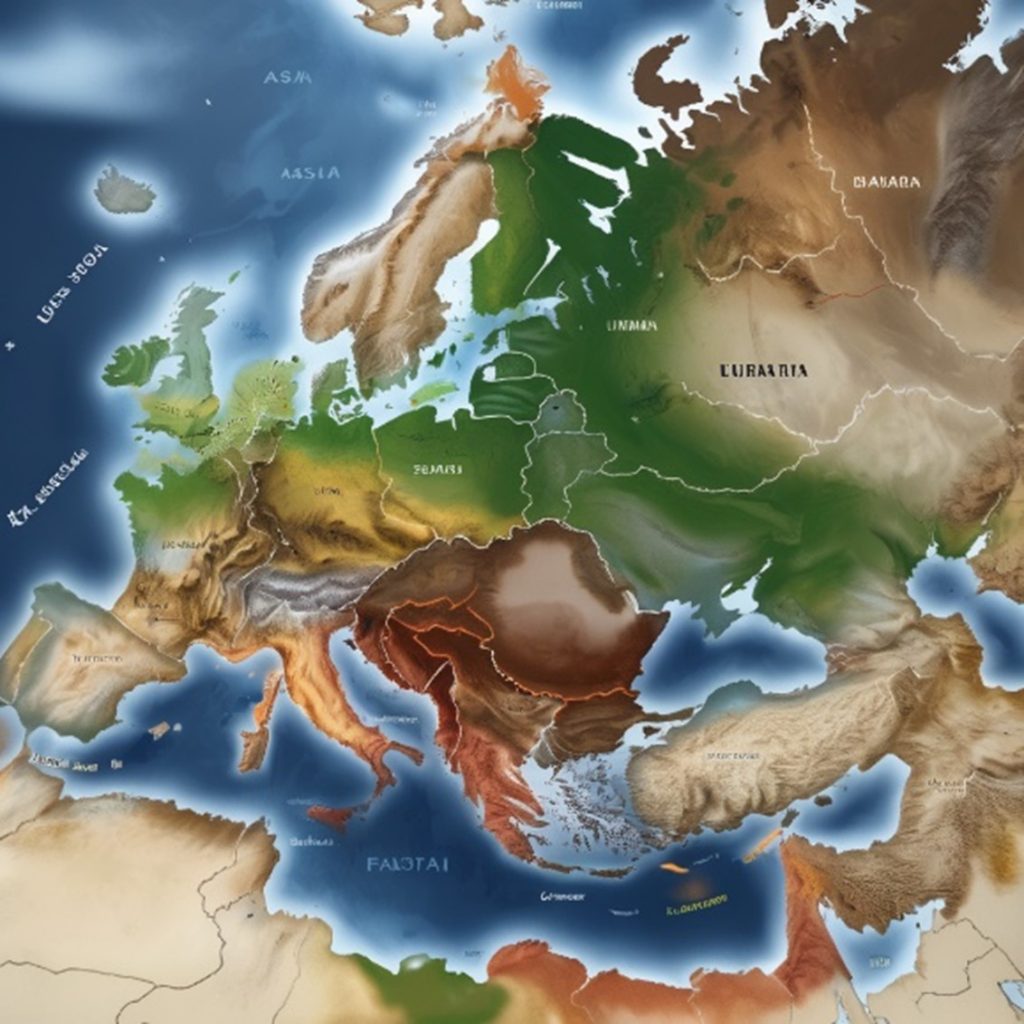 The Eurasian Grand Narrative
The Eurasian Grand Narrative
Eurasianism
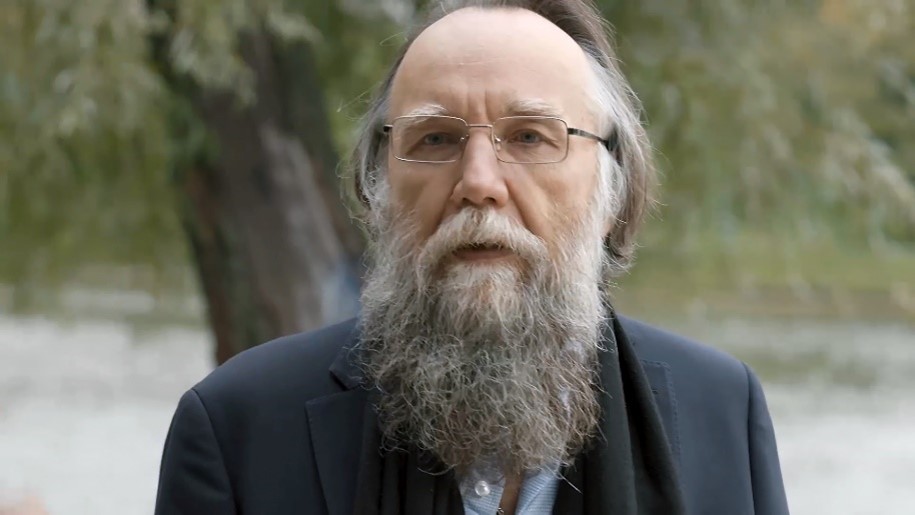 Eurasianism is the core philosophy behind the war in Ukraine, and Alexander Dugin first articulated it—Eurasianism advocates for a combined European and Asian landmass under Moscow’s centralized, authoritarian control. It envisions a united national identity and shared culture between all the peoples from the Pacific to the Atlantic, with an ethnic division at the Ural Mountains. The concept is opposed to the Enlightenment as far as the Enlightenment supports the rights of man and individual identity.
Eurasianism is the core philosophy behind the war in Ukraine, and Alexander Dugin first articulated it—Eurasianism advocates for a combined European and Asian landmass under Moscow’s centralized, authoritarian control. It envisions a united national identity and shared culture between all the peoples from the Pacific to the Atlantic, with an ethnic division at the Ural Mountains. The concept is opposed to the Enlightenment as far as the Enlightenment supports the rights of man and individual identity.
Vladimir Putin is said to have first met Dugin as a young KGB officer during the 1990s as Russia was pressing with great haste to develop a new national identity after the fall of the USSR. Russian historians were tasked with identifying the characteristics and values of the most successful Russian governments with hopes of reestablishing Russian greatness. They did not approach their challenge with a clean slate and, therefore, omitted the characteristics and values of non-Russian civilizations.
With the focus on power and influence, Dugin and the historians made these observations:
Ivan the Terrible (1530-1584) was a ruthless expansionist and the first tsar with the full authority of the state vested in him. He attempted to establish Russia as a diplomatic equal to England and France and conducted wars of pillage in Crimea and Turkey for both booty and skilled labor as slaves. He conquered much of Poland and Siberia. Ivan brought the European printing press to Russia and established centralized information control.
Peter the Great (1672-1725) modernized Russia by adopting Medieval European ideas and technologies. He proposed a strong, muscular, centralized government as he sought to become a European power. While Europe was undergoing the Renaissance and Enlightenment, Peter the Great believed that Europe would never survive the decline of the divine right of kings. He positioned the Russian Orthodox Church to support the Russian authority with the threat of damnation for heretics.
Catherine the Great (1729-1796) was an absolute despot who attempted to adopt the European Enlightenment understanding of empirical science and the arts without including the rights of man and public assemblies. She expanded Russia and applied the new sciences to architecture and weapons technology. She believed that centralized authority was superior to the ideas of decentralization being pushed around Europe as she thought that elite status was necessary to create correct ideas.
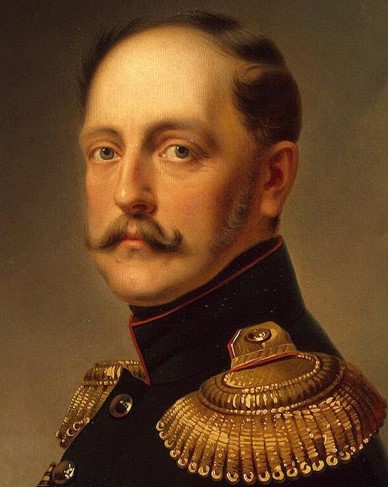 Tsar Nicholas I (1796-1855) further believed in the importance of autocracy, Orthodoxy, and nationality. By his time, Feudalism faced economic challenges from the Industrial Revolution, and he attempted land reforms to make an industrial workforce available. He emphasized centralized industrial planning under the direction of the nobility during the transition from a solely agrarian society. As before, the emphasis was placed on centralized authority and planning while rejecting those elements of the Enlightenment involving liberty and individual self-determination. The early factory model placed the former serfs under the direction and near ownership of the factory boss.
Tsar Nicholas I (1796-1855) further believed in the importance of autocracy, Orthodoxy, and nationality. By his time, Feudalism faced economic challenges from the Industrial Revolution, and he attempted land reforms to make an industrial workforce available. He emphasized centralized industrial planning under the direction of the nobility during the transition from a solely agrarian society. As before, the emphasis was placed on centralized authority and planning while rejecting those elements of the Enlightenment involving liberty and individual self-determination. The early factory model placed the former serfs under the direction and near ownership of the factory boss.
Tsar Nicholas II (1868-1917) was a weak ruler who emphasized the divine right of kings, nobility, and economic mercantilism. He authorized the military to crush dissent yet failed to provide resolute leadership during the Russio-Jappanese War of 1904-1905. Russia was soundly defeated and required peace talk mediation by American President Theodore Roosevelt. Russia underwent the 1905 revolution and blamed the revolution on the decline in confidence of the people in their authoritarian leader. As a further act of weakness, Nicholas II abdicated the throne in March of 2017. It was not long after that he was arrested and executed by the Bolsheviks in or about November 1917.
Lenin (1870-1924) seized power according to the Marxist principles of centralized economic planning and the abolition of private property. He established a secret police force unlike any in world history to solidify a common culture under the direction of a political elite in place of the remnants of the feudal elite.
Stalin (1878-1953) grew Russia into a world power utilizing brutal authoritarianism, industrialization, collectivization, and complete control under the communist party. He emphasized the mass expansion of the state by any means to justify the ends of a global Soviet empire.
And then came Gorbachev. Gorbachev tried modernizing the Soviet Union by introducing democratic decentralization, individual rights, and free markets. According to Alexander Dugin and Putin, the fall of the USSR was the greatest tragedy in world history. It was caused when Gorbachev began to loosen up on iron-fisted authority. The failure of the Afghan War broke the people’s confidence, as did the earlier loss to Japan in the Russia-Jappanese War.
Two lessons emerged and formed the core of Eurocentrism: Government must be authoritarian with a readily identifiable supreme leader, and a loss of confidence in the leader leads to the dissolution of the state. National honor is an archaic concept to Westerners, but it is the center of the state according to Alexander Dugin’s Eurasian philosophy.
Russian Nationalism
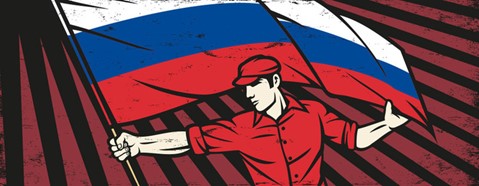 Putinism, or Russian Nationalism under the supreme leadership of Vladimir Putin, is substantially based on Alexander Dugin’s Eurasian philosophy. Russian Nationalism relies on a sense of loyalty, honor, and pride among the citizens as expressed through a reverence of Putin as the personification of the state. It emphasizes the historical continuum, as evidenced by Putin’s 22-minute lesson during the Tucker Carlson interview and the shared culture and traditions of the Russian people. Russian Orthodoxy is valued as a cultural gatekeeper, not a spiritual gatekeeper.
Putinism, or Russian Nationalism under the supreme leadership of Vladimir Putin, is substantially based on Alexander Dugin’s Eurasian philosophy. Russian Nationalism relies on a sense of loyalty, honor, and pride among the citizens as expressed through a reverence of Putin as the personification of the state. It emphasizes the historical continuum, as evidenced by Putin’s 22-minute lesson during the Tucker Carlson interview and the shared culture and traditions of the Russian people. Russian Orthodoxy is valued as a cultural gatekeeper, not a spiritual gatekeeper.
Territorial expansion and international recognition as military, not commercial, conquerors are the essential elements of prior greatness. Russia must expand its territory and threaten the world to restore its national honor. Failure throws the state into chaos and dissolution and must not be allowed at any cost. Peace and international cooperation are associated with Russian decline.
Dugin and prior Bolshevism emphasize Russia’s unique identity and the need to resist Western democratic influences, individualism, and nontraditional culture. However, Bolshevism did not directly call for placing Europe and Asia under Russian leadership, including all of the NATO states. Dugin’s philosophy requires Russia to expand continuously through wars of conquest and argues that the greatness of Rome ceased after Rome stopped conquering the rest of Europe.
While Bolshevism pursued a global proletarian, class-based revolution, Eurasionism pursues a traditional cultural-based revolution. The central leader is the center of culture and virtue to be emulated by the civilized world. Heretics are to be imprisoned, and witches are to be burned.
Russian Centric
Dugin’s philosophy expects the West to sue for peace and seek compromise with Russia, therefore recognizing Russia’s interests as legitimate. At the moment, these interests concern borders, security, and energy. But the expectation is that the West will compromise culturally by imposing censorship, replacement of democratic processes with party appointments, and the silencing of political dissents. The persecution of the J6 protestors is an example of the compromise expected to be pushed by Western governments against their citizens as an accommodation to Russia.
Putin has long maintained that the war in Ukraine is in response to the 2014 Maiden Revolution and to protect the honor of the Russian-speaking peoples in the Donbas region. Russia claims to seek the safety and stability of its compatriots by resisting NATO expansion and the deployment of hostile military forces along its borders.
However, Eurasianism requires growing and maintaining national honor constantly and forever as its central concept. Eurasionism allows leaders to change as part of the flow of history, but honor to remain. It matters little what Russia claims to have triggered the war; if not this Riechstag fire, then that Lusitania would have been orchestrated. Americans of a certain age understand this after experiencing the LBJ administration.
Headwinds
Western cultural influences continue to challenge Russia and its grand plan to establish Putin as the great savior of civilization. Globalism and accepting a multicultural world denote Russia as one among many. The inclusion and perspectives of conquered, indigenous peoples in the global historical record are slowly transforming the legacy of the Russian culture from the civilizers they fancy themselves into barbarians and destroyers of truth and beauty.
The Russian population is aging, and without sudden advances in robotics or secret underground baby factories, Russia will soon enough lose the ability to project force. It must conquer populations and impress them to work if Russia is to survive.
The global warming narrative might be a scientific falsehood and hoax. Still, as a political narrative, it is moving the world away from reliance on Russian natural resources, denying Russia the Western currency needed to enact its Eurasian agenda. Western investments of billions into solar farms and windmills will likely become stranded and obsolete once the global narrative war is ultimately decided.
Defeat
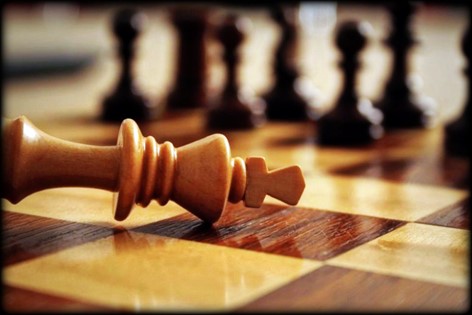 Should Russia be defeated in Ukraine, the consequences would be significant and far-reaching. Firstly, it would represent a major blow to Russian prestige and influence on the global stage, potentially encouraging other nations to challenge Russia’s interests and assert their own.
Should Russia be defeated in Ukraine, the consequences would be significant and far-reaching. Firstly, it would represent a major blow to Russian prestige and influence on the global stage, potentially encouraging other nations to challenge Russia’s interests and assert their own.
A defeat in Ukraine could also lead to the collapse of the Russian-backed separatist regions in Donetsk and Luhansk, resulting in the re-unification of Ukraine and the loss of a critical strategic asset for Russia. Defeat could have far-reaching implications for Russia’s security and ability to project regional power. It would break the grand narrative.
Furthermore, a defeat in Ukraine could lead to political instability in Russia, as the government will face increased pressure from those who believe that the war was a mistake or who are unhappy with the outcome. Defeat would result in a shift in Russian foreign policy, with potential implications for relations with other nations and international organizations.
Eurasionism cannot tolerate freedom of speech or expression or democratic pluralism. Neither can it accept human rights as innate and not granted by the state. Western leftists are attempting to support the Russian regime by publicly stealing elections to enforce uniparty rule, censor speech, deny fundamental rights during so-called emergencies, and otherwise enforce an authoritarian rule in broad daylight.
Western leftists are making an offer to Russia to curtail democracy in the West in exchange for global acceptance of their LGBT+ agenda. American leftists are not supporting the war in Ukraine to end the Eurasian narrative. They are supporting the war, as predicted by Dugin in 1991, to exchange Ukraine for Russia upon acceptance of the left’s sexual deviancy as the global norm.
The Western Response
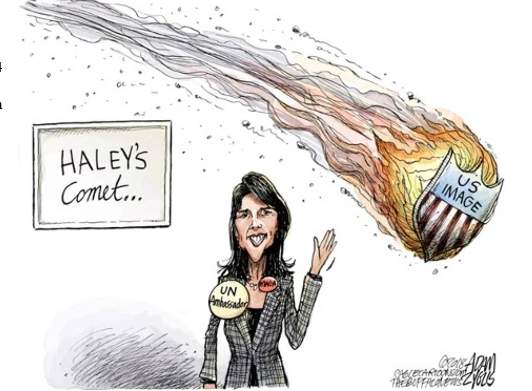 This week saw the wrapping up of CPAC 2024 in Washington with the usual red meat thrown to the conservative faithful. A few notables emerged as the Republican Party is now solidly the party of MAGA. MAGA exists because the Democrats and Rinos both advocate the suppression of liberty to the Russian Eurasian narrative as an element of grand compromise.
This week saw the wrapping up of CPAC 2024 in Washington with the usual red meat thrown to the conservative faithful. A few notables emerged as the Republican Party is now solidly the party of MAGA. MAGA exists because the Democrats and Rinos both advocate the suppression of liberty to the Russian Eurasian narrative as an element of grand compromise.
The game played by flying Kissingers or smoke-filled room negotiations might have once worked, but not so much in the internet age. MAGA is the response to the global appeasement of globalist interests, and MAGA is not going away. It is no longer about Trump. It is about liberty and sovereignty.
Nikki Haley is the globalist candidate and has received many more democrat votes than Republican votes. Her financiers have grown tired. She hangs on in hopes that something unfortunate happens to Trump. Her politics over the previous two decades have been consistent: oppose Putin on the battlefield but dangle the expansion of Western authoritarianism as a cookie. It’s nothing more than a diplomatic carrot and stick with the American people treated as chattel.
Mitch the Turtle is throwing in the towel, but not until after he maximizes election interference in November.
The problem with the Western narrative is quite clear. Democracy is now defined as agreement among institutions and is no longer about the people’s will.
We must solve this problem.
Mike Ryan is a chemical engineering consultant to the Iron and Steel, Minerals, Heavy Chemicals, and Fibers industries.

